- South Korea and Japan claim the islands Seoul calls Dokdo and Tokyo calls Takeshima
- S. Korea has had armed guards stationed on the rocky outcrop since the 1950s
- Located in rich fishing grounds, the area around the islands may also contain gas reserves
- Tourist ferries arrive frequently, swarming with people carrying South Korean flags
Dokdo/Takeshima (CNN) -- Catching a glimpse of the disputed islands in the distance, you can't help but wonder how such unremarkable rocks have soured diplomatic relations for so many decades.
The rocky, unforgiving terrain reflects the current relationship between the two protagonists, South Korea and Japan. Seoul calls the islands Dokdo, Tokyo calls them Takeshima. Both countries claim them, Seoul controls them. And the public relations battle to win international support is in full swing.
The South Korean government organized a helicopter trip to the territory Thursday, inviting CNN as well as other international media, in a move that angered Tokyo. In a statement to CNN, Japan's Foreign Ministry called the trip "extremely regrettable and totally unacceptable."
Read: Why Asia is arguing over its islands
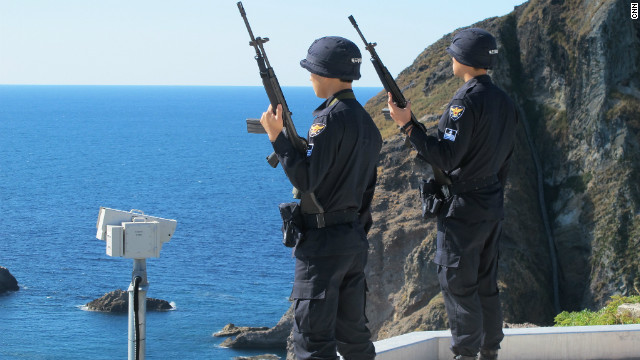

Japan says South Korea is illegally occupying the islands.
The police presence is the first thing you notice when you touch down. South Korea has had armed guards stationed on the island since the 1950s. The head of the Dokdo guards, Lee Gwang-seup says, "Japan wants to take our land by force. This has been our land since ancient times and we have to protect it."
Tokyo recently asked Seoul to resolve the matter diplomatically by referring it jointly to the International Court of Justice in the Hague, but Seoul refused, saying there was no question of sovereignty. Japan may now apply to the Hague unilaterally.
Read: Disputed islands: Who claims what?
Kim Sung-do is 71 years old. He and his wife are the only permanent residents here. When I ask him if life is hard on an island that can be cut off from the outside world for weeks at a time in bad weather, he simply says, "I chose to come here, so I can't complain. And what is there to complain about? Everywhere you look you see fish."
These waters are rich fishing grounds, the reason Kim visited so often since the 1970s before moving here in 1991.
There are also believed to be gas reserves here. No one knows how large the reserves might be, but they're potentially big enough to merit a diplomatic spat.
And then the tourists arrive. Police salute the daily ferry as it docks in the tiny port. Once the gangway is in place, more than 100 visitors swarm onto the island, some carrying Korean flags, others shouting with joy as their feet touch the ground.
It's a patriotic duty for some, a religious experience for others. One group of Christians gathers in a circle to pray, giving thanks for being allowed to visit.
But the visit is brief, 20 minutes later they are herded back onto the ferry, but not before telling the assembled journalists how much the visit means to them.
Kevin Kim, 40, says, "I'm a native of Korea and an American citizen, but in my blood I'm Korean... I feel so great to be here... It really makes me upset when Japan claims this island, it's absurd, and it should not be tolerated."
Others talk of their joy at making this pilgrimage and showing their support for South Korea's claim on the islands.
But despite a choreographed visit designed to show Seoul's side of the story, the dispute shows no signs of waning. In fact, the trip itself looks like a fresh chapter of tension in a dispute that has raged between the two neighbors for decades.
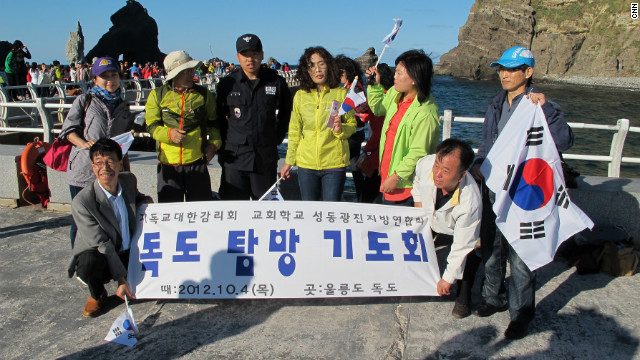
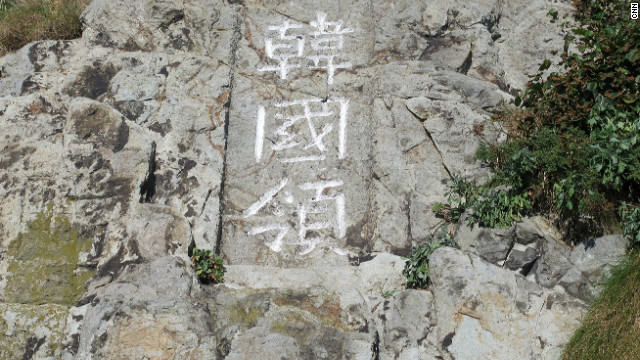
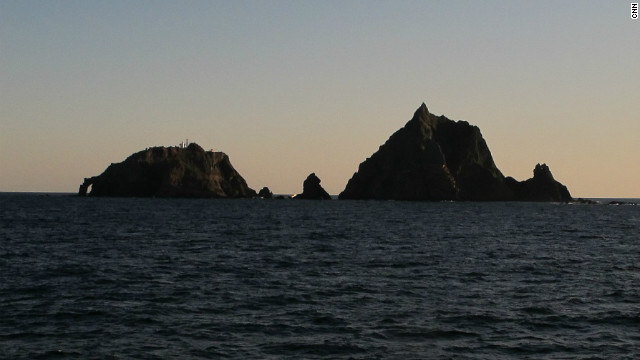
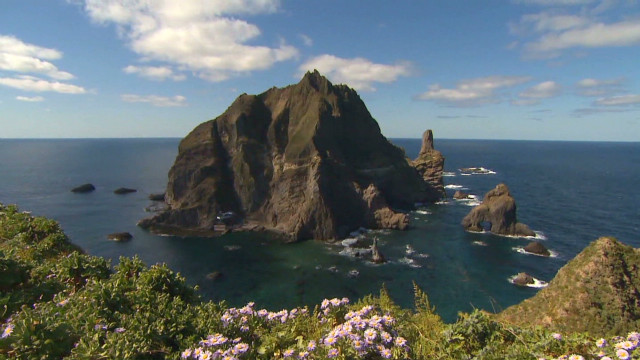





No comments:
Post a Comment